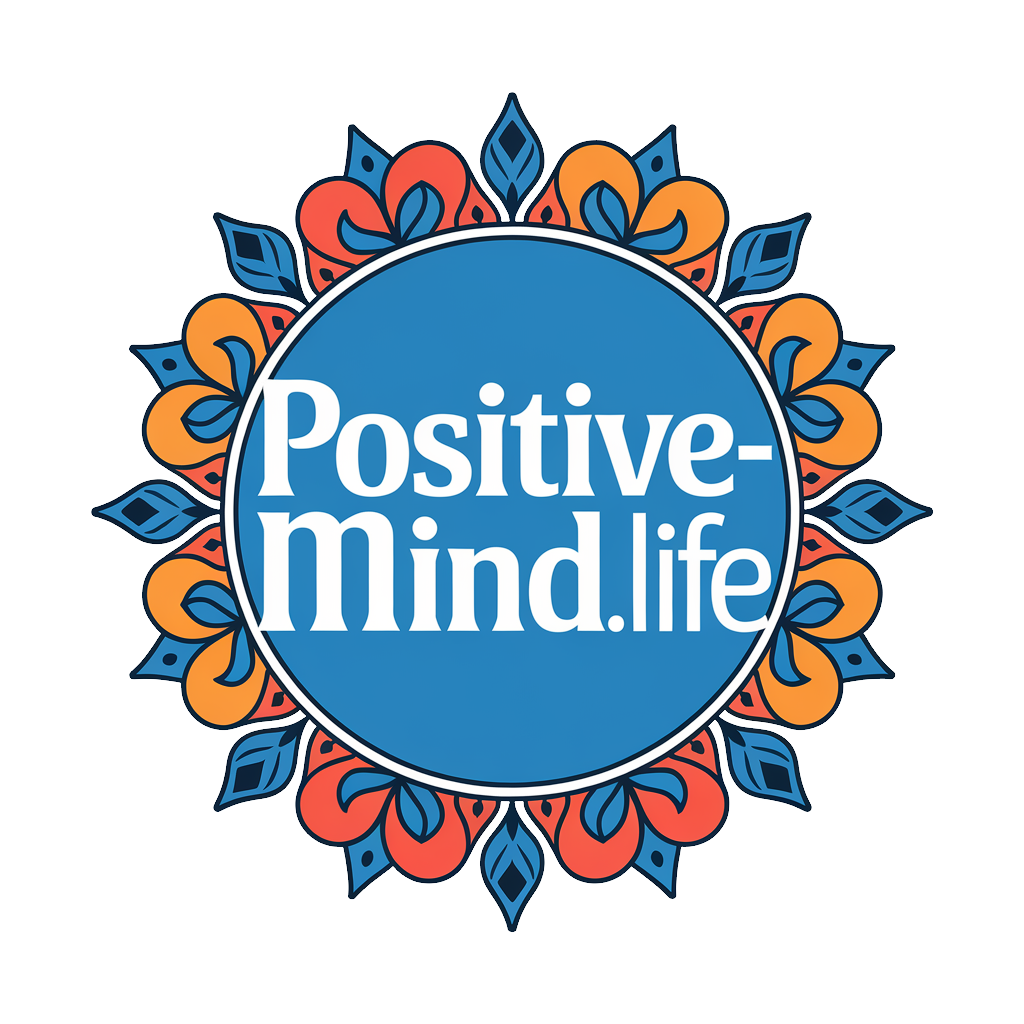Gratitude Journals- The Secret Weapon for Happiness!
Gratitude journals are your secret weapon for boosting happiness. When you jot down moments of joy, big or small, you’re training your brain to focus on positivity. This practice not only enhances your mood but also helps reshape your mindset over time. You’ll find that acknowledging the good in your life can lead to greater resilience and emotional clarity. It’s a simple yet profound way to connect with your feelings and celebrate your progress. If you’re curious about how to incorporate this powerful tool into your daily routine, there’s much more to explore.
Key Takeaways
- Gratitude journals enhance emotional well-being by fostering positive reflections and reinforcing a mindset of appreciation.
- Regular journaling rewires brain pathways, increasing happiness and reducing symptoms of depression.
- Documenting small joys cultivates mindfulness and deepens appreciation for daily experiences.
- Gratitude practices improve mental health, strengthen relationships, and boost overall resilience.
- Consistent reflection in a journal acts as a reminder of personal growth and abundance in life.
Understanding Gratitude Journals
Gratitude journals are powerful tools that can transform your perspective on life. At its core, gratitude is the recognition and appreciation of the positive aspects of your experiences. Understanding this gratitude definition is essential as you embark on your journaling journey. By acknowledging what you’re thankful for, you cultivate a mindset that invites more positivity into your daily life.
When choosing a gratitude journal, consider the various journal types available. You might prefer a simple lined notebook, where you can freely express your thoughts. Alternatively, guided journals come with prompts that spark reflection, helping you dig deeper into your feelings of gratitude. Whichever type you select, the goal remains the same: to create a consistent practice that reinforces your appreciation for life’s gifts.
As you write, focus on specific moments—big or small—that brought you joy. This practice not only enhances your awareness of the good but also fosters resilience against negativity. By dedicating time to reflect on gratitude, you nurture a more profound sense of happiness and fulfillment. Embrace the journey, and watch how your perspective shifts over time.
The Science Behind Gratitude
The benefits of keeping a gratitude journal go beyond personal reflection; they are supported by a growing body of scientific research. Neuroscience findings reveal that practicing gratitude can significantly impact your brain’s chemistry. When you focus on positive experiences, your brain releases dopamine and serotonin, neurotransmitters that enhance mood and promote feelings of well-being.
Gratitude interventions, such as keeping a journal, prompt you to consciously acknowledge the good in your life. This shift in perspective doesn’t just change your mood temporarily; it can rewire neural pathways, making it easier to recognize positivity over time. Studies show that individuals who regularly engage in gratitude journaling report higher levels of happiness and lower levels of depression.
Benefits of Keeping a Journal
Keeping a journal can significantly boost your emotional well-being, helping you process your thoughts and feelings more effectively. As you write, you enhance your mindfulness practice, allowing you to be present and fully engaged in your experiences. Embracing this simple habit can lead to a deeper understanding of yourself and a greater appreciation for the little things in life.
Boosts Emotional Well-Being
Emotional well-being often hinges on how you perceive and process your experiences, and a gratitude journal can serve as a powerful tool in this journey. By regularly noting what you’re thankful for, you reinforce positive emotions and cultivate emotional resilience. Each entry encourages you to focus on the good, even during challenging times, which helps you navigate life’s hurdles with greater strength.
Writing about your daily blessings can also enhance your mental clarity. As you reflect on what brings you joy, you create a clearer picture of your values and priorities. This clarity allows you to make better decisions that align with your true self, reducing the overwhelm that often accompanies daily life.
Moreover, keeping a gratitude journal acts as a reminder of your progress, fostering a sense of accomplishment. It shifts your focus from what’s lacking to what’s abundant in your life, nurturing a mindset of growth and positivity. You’ll find that as you engage in this practice, your emotional well-being flourishes, leading to a more fulfilling and happier existence. Embrace this powerful habit, and watch how it transforms your perspective on life.
Enhances Mindfulness Practice
Mindfulness often flourishes when you engage in reflective practices, and a gratitude journal can significantly enhance this journey. By consistently documenting what you’re grateful for, you cultivate a deeper sense of awareness that complements various mindfulness techniques and awareness exercises. This practice invites you to slow down, acknowledge the present moment, and appreciate the richness of your experiences.
Consider the following table that outlines how gratitude journaling supports mindfulness:
| Gratitude Journal Practice | Mindfulness Benefit |
|---|---|
| Daily reflections | Encourages present-moment awareness |
| Noting small joys | Cultivates appreciation for life |
| Reviewing past entries | Enhances self-awareness |
Each time you write, you not only reinforce positive thoughts but also train your mind to focus on the here and now. This intentional act of gratitude aligns with mindfulness principles, making you more attuned to your emotions and surroundings. As you immerse yourself in this practice, you’ll likely find that your capacity for joy and contentment expands, paving the way for a more fulfilling life. Embrace this powerful tool, and watch how it transforms your mindfulness journey.
How to Start a Gratitude Journal
Starting a gratitude journal can be a rewarding experience, but it’s important to find a format that resonates with you. You might choose to jot down daily gratitude practices or take time to reflect on positive moments in your life. Let’s explore how you can create a meaningful routine that brings you joy and appreciation.
Choosing Your Journal Format
How do you envision your gratitude journey unfolding? Choosing the right journal format is crucial for nurturing that vision. You might prefer digital journals, which offer convenient app options that sync across devices, allowing you to express gratitude anytime, anywhere. Alternatively, if you enjoy the tactile experience of writing, consider various notebook styles. Bullet journaling combines organization with creativity, enabling you to craft artistic layouts that reflect your personality.
For those who appreciate minimalism, minimalist designs can help you focus solely on your thoughts without distractions. Themed journals, like ones dedicated to specific areas of gratitude, can deepen your reflections. You might want a notebook with a personalized cover that resonates with you, making it a joy to open daily.
Don’t overlook portability—choose a size that fits comfortably in your bag, ensuring you can jot down gratitude moments on the go. Lastly, if sustainability matters to you, explore options made from eco-friendly materials. Each choice shapes your gratitude practice, so think about what resonates most with your style and intention.
Daily Gratitude Practices
Each day presents a fresh opportunity to cultivate gratitude, and beginning your gratitude journal can be a transformative experience. To start, set aside a specific time each day for your gratitude rituals—morning or evening works best for many. This consistency helps reinforce the practice, making it a part of your daily reflections.
Begin with simple prompts. Write down three things you’re grateful for, and don’t hesitate to dig deep; it could be as profound as a supportive friend or as simple as a warm cup of coffee. The key is to focus on the specifics. Instead of saying, “I’m grateful for my family,” consider what they did that day that made you feel appreciated.
As you write, reflect on why each item matters to you. This process not only enhances your sense of gratitude but also fosters a deeper understanding of your emotions and experiences. Over time, you’ll find that this daily practice nurtures positivity, helping you to see the beauty in even the smallest moments. Embrace this journey, and watch how it transforms your outlook on life.
Reflecting on Positive Moments
Reflecting on positive moments can be a powerful way to kick off your gratitude journal. When you sit down to write, think about the joyful memories that bring a smile to your face. Maybe it’s a shared laugh with a friend, a compliment that brightened your day, or a beautiful sunset that took your breath away. By focusing on these moments, you create a space for positive reflections that can shape your mindset.
Start by jotting down three things you’re grateful for each day. They don’t have to be monumental; even small joys matter. As you record these moments, allow yourself to relive the emotions tied to them. What made you feel happy? Who were you with? Engaging with these questions deepens your connection to the positive experiences you’ve had.
Over time, you’ll notice a shift in your perspective. Instead of fixating on challenges, you’ll cultivate an appreciation for the good in your life. This practice not only enhances your gratitude but also nurtures resilience and happiness. So, grab a pen and paper, and let those joyful memories flow; you’re on your way to mastering the art of gratitude!
Daily Practices for Gratitude
In the quiet moments of your day, taking a few minutes to jot down what you’re grateful for can transform your mindset. Integrating gratitude exercises into your daily rituals isn’t just about listing things; it’s about cultivating a deeper appreciation for your life. Start with a simple practice: each morning, write down three things you’re thankful for. This can range from the warmth of your coffee to the support of a friend.
As you engage in this daily ritual, you’ll notice a shift in your perspective. You’re training your brain to focus on the positive, even amidst challenges. Consider expanding your gratitude exercises. One effective method is to reflect on a specific person each week, detailing how they’ve impacted your life.
Another approach is to keep a gratitude jar; fill it with notes of appreciation and read them during tough times. These practices not only enhance your emotional well-being but also foster resilience. By committing to these daily rituals, you’re building a foundation of gratitude that enriches your life and nurtures your happiness. Embrace the process, and watch as your mindset transforms over time.
Overcoming Challenges in Journaling
Starting a gratitude journal can feel daunting, especially when life gets busy or overwhelming. You might encounter several challenges along the way, including:
- Creative blocks that make it hard to express gratitude.
- Time constraints that leave little room for reflection.
- Self-doubt that whispers your entries aren’t meaningful enough.
- Consistency issues that arise when daily life interrupts your routine.
- Emotional fatigue that can diminish your motivation.
Overcoming these hurdles requires a blend of patience and strategy. First, embrace imperfection; even a few words can capture gratitude. Set aside just five minutes each day to jot down thoughts, making it easier to fit into your schedule. If you struggle with what to write, keep a list of small moments that brought you joy, so you can draw from it during tougher times.
Lastly, establish a routine that works for you—whether it’s morning coffee or bedtime reflections. Remember, journaling isn’t about perfection; it’s about connection to your feelings. By addressing these challenges head-on, you’ll find your gratitude practice can flourish, bringing more happiness into your life.
Inspiring Gratitude Journal Prompts
Finding joy in gratitude journaling often hinges on what you choose to write about. To cultivate a deeper sense of appreciation, consider starting with specific gratitude lists. Reflect on your daily experiences and jot down three things you’re grateful for each day. It could be as simple as the warmth of the sun or a kind word from a friend.
Incorporate gratitude quotes that resonate with you. Quotes like, “Gratitude turns what we have into enough,” can provide inspiration and perspective. Reflecting on these words can help deepen your understanding of gratitude’s power.
You might also explore prompts that encourage deeper reflection. Ask yourself questions like, “What small things brought me joy today?” or “Who has positively impacted my life, and how?” These prompts can lead to profound insights, allowing you to appreciate the nuances of your life.
As you engage with these prompts, remember that the goal isn’t perfection but connection. Embrace your unique journey and let your gratitude journal be a sanctuary for your thoughts, fostering a mindset of abundance that’ll enhance your overall happiness.
Transforming Your Mindset With Gratitude
Gratitude can be a powerful tool for shifting your mindset, enabling you to view challenges through a lens of appreciation rather than limitation. When you cultivate a gratitude mindset, you create space for profound mindset shifts that can transform your daily experiences. Here are some key areas where gratitude can make a difference:
- Increased Resilience: Acknowledging what you’re thankful for helps you bounce back from setbacks.
- Enhanced Perspective: Gratitude allows you to focus on the positives, even amidst adversity.
- Stronger Relationships: Expressing gratitude fosters deeper connections with others.
- Improved Mental Health: A gratitude practice can reduce anxiety and depression.
- Greater Satisfaction: Recognizing your blessings leads to a more fulfilling life.
Frequently Asked Questions
How Long Should I Keep a Gratitude Journal?
You should keep a gratitude journal for at least a few weeks to establish a habit. Consider journaling daily or weekly, allowing reflection periods to deepen your insights and enhance your overall well-being.
Can I Use Digital Apps for Gratitude Journaling?
Absolutely, you can use digital options for gratitude journaling! Many apps offer features like reminders, templates, and mood tracking, making it easier to reflect daily and deepen your practice. Explore what resonates with you!
What if I Struggle to Find Things to Be Grateful For?
If you’re struggling to find things to be grateful for, try using gratitude prompts or techniques. Reflecting on small moments can shift your perspective and reveal hidden joys, helping you cultivate a deeper sense of appreciation.
Is There a Specific Time of Day to Write?
There’s no specific time, but morning reflections can set a positive tone for your day, while evening entries help you unwind and appreciate your experiences. Choose what feels right for you, and stick with it.
Can Gratitude Journaling Improve My Mental Health?
Absolutely, gratitude journaling can significantly enhance your mental health. By employing effective journaling techniques, you’ll unlock mental health benefits, fostering positivity and resilience, which can transform your outlook and emotional well-being over time.





